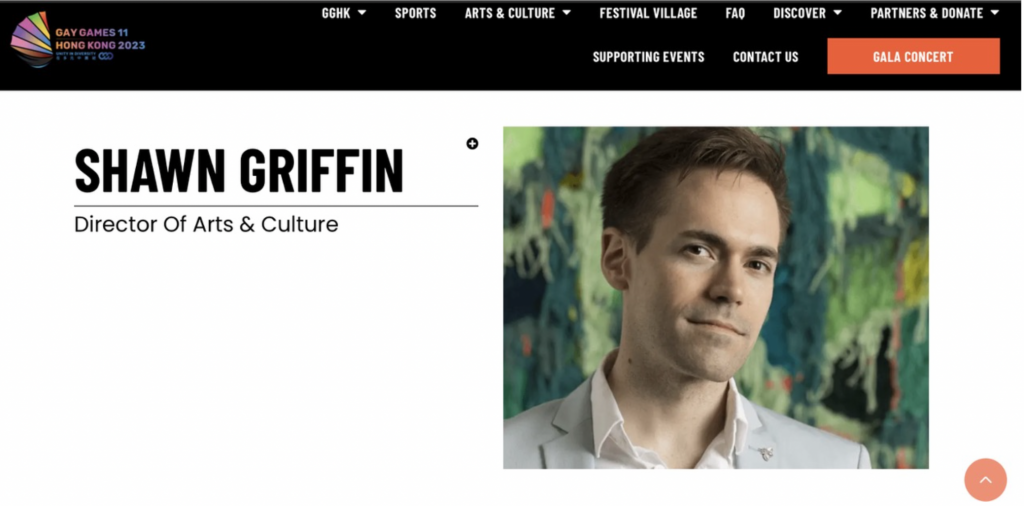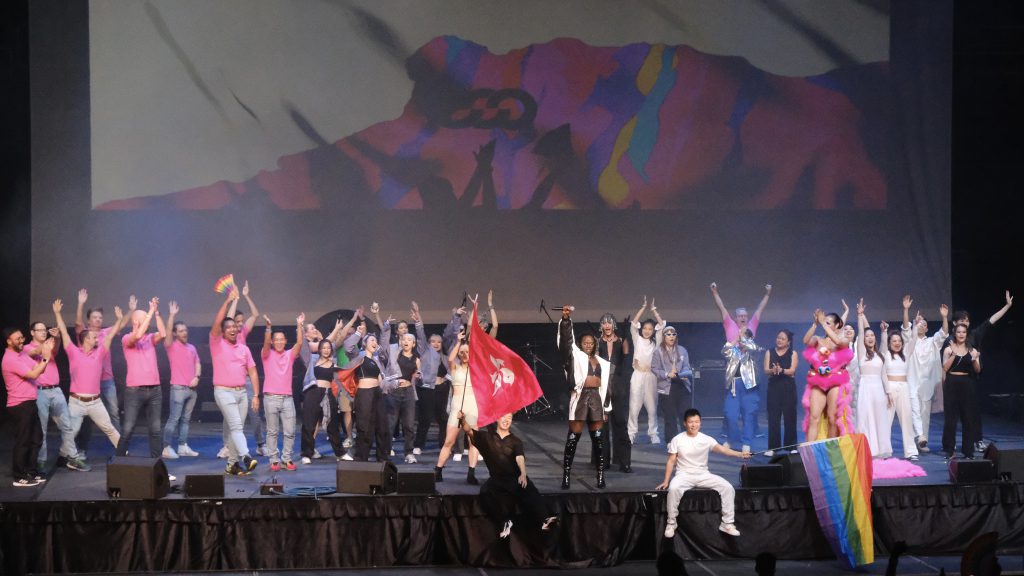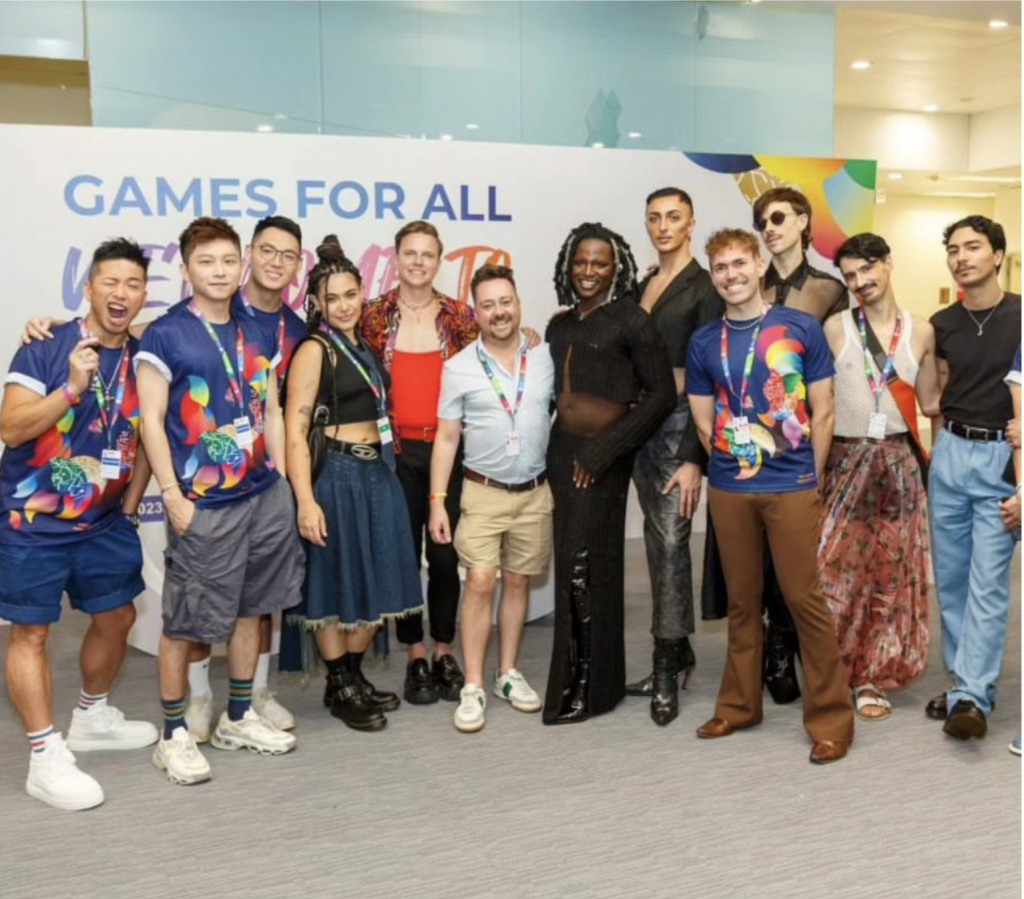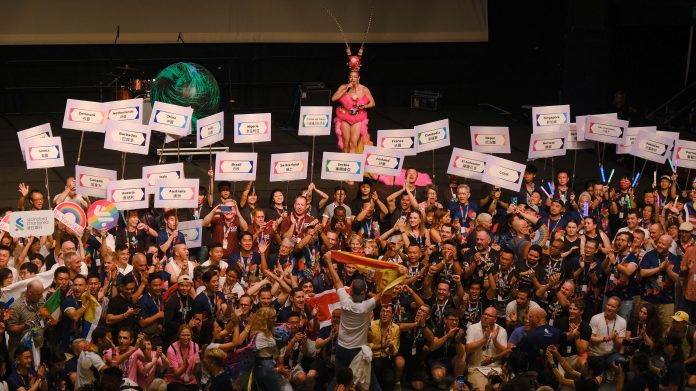Despite challenges and political pressures, Shawn Griffin organised the first Gay Games in Hong Kong.
By Yilie Lo
When the COVID-19 pandemic first began in early 2020, Shawn Griffin took up the directorship of Gay Games Hong Kong’s arts and culture division, which was responsible for organising the competition’s art events, concerts and performances.
The role required him to plan the entire programme, recruit members, and reach out to venues and performers.
It turns out to be a big challenge because of the pandemic.
“Basically, my introductory meeting with the arts and culture team was a Zoom call. I don’t think I ever met a single person on the team face-to-face for over half a year. Many talents from the team left due to the uncertainties of the pandemic and government regulations, ” he recalls.

Initially, Griffin wanted to recruit more global talents for his team. However, it was challenging for foreign citizens to get a visa due to the travel restrictions brought by the pandemic.
“We had to find a healthy mix of local talents and international talents. Because of the travel restrictions, it was difficult to bring in international talents to our team,” Griffin says.
“It was challenging yet reflected what Hong Kong could offer in terms of showcasing our subculture as a bold city,” he adds.
COVID-19 was not the only obstacle to overcome, as Gay Games’ unprecedented presence in Hong Kong also led to public debate.
“Owners of venues were very reluctant because nothing like this has been done before. It was difficult to find places that were supportive or open to us,” Griffin says.
“Getting Queen Elizabeth Stadium was a major step for us to prove our competency,” he adds.
Held from November 3 to 11, the Gay Games Hong Kong 2023 attracted 2,300 athletes from over 40 nations and regions, including Australia, the Philippines, and Malaysia. It was held at various arenas across the city, such as Queen Elizabeth Stadium, MacPherson Stadium and Jockey Club HKCFA Football Training Centre.
The event also faced political backlash from lawmakers and religious groups. Legislative council member Junius Ho Kwan-yiu accused Gay Games of threatening the traditional values of Hong Kong and violating the National Security Law as early as 2021.
“Historically, there were no laws against homosexuality in China. So, those who say that the Gay Games are against traditional values are not doing their historical research very well,’ Griffin says.
“We were not making any statements against any groups. Our only purpose was to have a good time and support the queer community,” he adds.

Griffin goes on that the Gay Games is a blessing to the city as it showcase Hong Kong’s capabilities of hosting global scale events.
“The Gay Games is a strong step in the direction towards a more societal acceptance of the LGBTQ+ community in Hong Kong. It shows the city’s potential to become a safe haven for the queer community in Southeast Asia,” Griffin says.
Before moving to Hong Kong, Griffin always had a sense of insecurity for being part of the queer community. He was born in a Christian conservative neighbourhood in Missouri, US. He found it difficult to fully express his own identity when growing up.
“I was always in denial of my sexuality growing up there, and so are some of my friends. I didn’t fully come out until I moved here,” the 33-year-old says. He is now working as a freelance photographer.
Griffin first came to the city in 2012 to study at the Savannah College of Art and Design Hong Kong as a postgraduate student. He ended up transferring his studies to Hong Kong and stayed in the city.
“I was really falling in love with the city. Being in the creative industry, it was impactful for me to stay in a city where my creativity could be nurtured,” he says.
Apart from being a freelance photographer, Griffin worked for a public relations agency before he joined the art and culture team at Gay Games.

After Gay Games Hong Kong, Griffin continues to support the city’s queer community. He is now collaborating with bars, clubs and hotels to bring in more inclusive and representational performances and events.
“We need these small-scale productions to get stories told on a daily basis. They are what really brings the local community together,” he adds.
According to the Federation of Gay Games, the next Gay Games will be hosted in Valencia, Spain in 2026.
Sub-edited by Leopold Chen







































